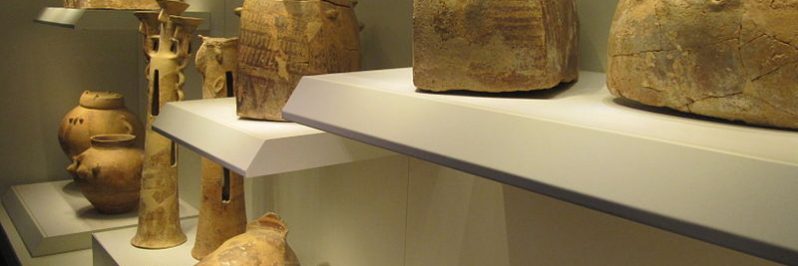3,700 years after Canaanites first inscribed it onto an ivory delousing comb, researchers have translated the oldest sentence ever found. Source: Tamar Hayardeni/Wikimedia
Roughly 3,700 years after it was first inscribed on an ivory lice comb, researchers have translated the oldest sentence ever found written in the ancient language of Canaanites.
The Canaanites are believed to be the first people to use an alphabet. The lived roughly four thousand years ago in Canaan — an area the covers the present-day Palestine, Israel, Lebanon, Syria, and Jordan.
The comb is made of ivory — the material that elephant tusks are made of. It was first discovered in 2017, but the letters inscribed on it were only noticed by archaeologists in 2022.
Similar to modern delousing combs, the Canaanite comb has thick teeth, designed for removing lice and their eggs from beards.
The sentence confirms the use of the comb, as it says “May this tusk root out the lice of the hair and the beard”.
“This is the first sentence ever found in the Canaanite language in Israel,” said Archaeology professor Yosef Garfinkel. He called it “a landmark in the history of the human ability to write”.
“The Canaanite cities are mentioned in Egyptian documents, the Amarna letters that were written in Akkadian, and in the Hebrew Bible.
“The comb inscription is direct evidence for the use of the alphabet in daily activities some 3700 years ago. This is a landmark in the history of the human ability to write.”
The comb’s sentence was the first time an “entire verbal sentence” has been found that is written in the language spoken by the people that lived in the Canaanite city of Lachish, located roughly 40 kilometres to the south-west of Jerusalem.
According to Professor Garfinkel, the artefact is proof of the Canaanite alphabet’s use in daily life during ancient times.
As no elephants existed in the area to produce the ivory, researchers believe the comb was an imported luxury item.
The comb can be viewed here in Smithsonian Magazine.





